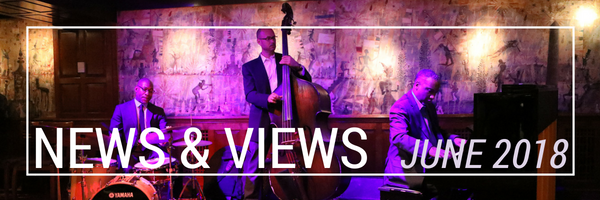House Stands at Recess through Labor Day
The House of Representatives is now in recess through the end of August, an ideal time for childhood cancer advocates to find their Members of Congress while they're back in their home districts.
Typically, Members of Congress from both chambers spend nearly all of August back in their home districts but the Senate will only recess for a few days this year before returning to work in Washington. If you're willing to try to meet with your Representative this August, we've compiled some tips on our blog for setting up a meeting and suggestions for topics to cover.
If you're not able to get a meeting set up with either your Representative or a member of their staff, another idea is to check out Town Hall Project to see if they'll be holding a public forum near you. Here are some tips for participating in a town hall meeting.
Thank you for taking the time to share your story and our shared cause with lawmakers who have the power to create meaningful change for our kids.
FDA Announces Drug Shortages Task Force and Draft Guidance on Gene Therapy for Rare Diseases
Drug Shortages Task Force: FDA Commissioner Scott Gottlieb, MD, announced the formation of a new task force charged with "[delving] more deeply into the reasons why some shortages remain a persistent challenge ... [and] to look for holistic solutions to addressing the underlying causes for these shortages." The Drug Shortages Task Force will be led by Keagan Lenihan, the FDA's associate commissioner for strategic initiatives.
We are encouraged by this development, as drug shortages have frequently popped up over the years as a threat to reliable, dependable cancer treatment for our kids. We're grateful to the FDA for taking steps to find lasting solutions to this recurring problem.
> Read more: FDA's Press Release, 7.12.18
Draft Guidance on Human Gene Therapy for Rare Diseases:Commissioner Gottlieb also announced this month that the FDA is issuing six draft guidance documents "intended to serve as the building blocks of a modern, comprehensive framework for how we'll help advance the field of gene therapy while making sure new products meet the FDA's gold standard for safety and effectiveness."
One of these new draft guidelines is focused on Human Gene Therapy for Rare Diseases - a category that includes pediatric cancers. You can find the full draft guidance here, which is open for public comment and stakeholder input before it will be finalized.
> Read more: FDA's Press Release, 7.11.18
A Look Ahead: Childhood Cancer Awareness Month
- September 13: Along with several partnering organizations, we're holding an externally-led Patient Focused Drug Development meeting to provide the FDA with patient perspectives on chemotherapy-induced hearing loss in pediatrics. Visit here to learn more and register. Registration is limited and filling fast!
- September 14-16: We'll bring live updates from a number of childhood cancer awareness events taking place in DC throughout September, including CureFest on the National Mall - which we're proud to help sponsor - and the Congressional Childhood Cancer Caucus's annual Summit on Capitol Hill.
- September 26: Save the Date for the continuation of our 2018 Webinar Series with "Hope on the Horizon – New Treatments for Childhood Cancer." Registration will be available soon.
Plus: As our 2018 College Scholars Award recipients start their fall semesters, they also kick off their chosen childhood cancer advocacy projects. Learn about our scholars and their projects here.
Tip: Check the CAC2 Event Calendar to find or share events going on in September (or any other time of year!): https://cac2.org/events/
Quick Links | Recommended Reading
- Understanding the Psychosocial Effects of Childhood Cancer:Scientific American shined a spotlight on the mental and emotional toll that a childhood cancer diagnosis takes on the whole family. (Scientific American, 7.24.18)
- Speeding toward Faster T-Cell Production: Researchers are working to more efficiently edit genes by using electrical fields instead of viruses to deliver modified genetic material into a patient's cells. This is early research that has not yet been tested in people but it holds tremendous promise for speeding the pace of immunotherapy advances. (New York Times OR Nature Journal, 7.11.18)
- CDC Map Shows Incidence Trends: A new map of childhood cancer incidence rates reveals higher rates in the Northeast and lower rates in the South. There are likely multiple factors accounting for the geographic disparities, including genetic predisposition, race and ethnicity, environmental exposure (air pollution, secondhand smoke, etc), and enhanced detection in certain geographic regions due to better access to care. (Centers for Disease Control, 6.29.18)
- Pediatric Cancer Survivors Need Lifelong Endocrine Screening: The Endocrine Society released new clinical guidelines directing providers to regularly assess childhood cancer survivors for a wide range of growth and hormone disorders, based on new research finding that as many as 50 percent of survivors diagnosed as teens will develop an endocrine disorder later in life. (The Journal of Clinical Endocrinology & Metabolism, 6.29.18)
Another Beautiful Art Day : Thank You!
Thank you to everyone who supported this year's Art Day in Sagaponack and Georgica, New York, earlier this month. We give special thanks to Susan and Marilyn Scherr, who have generously hosted this gorgeous event year after year in support of our childhood cancer advocacy work.
Gifts of Stock
Did you know that giving appreciated stock held for more than a year could be more beneficial than giving cash?
If you donate stock that has increased in value since it was first purchased over a year ago—and if you itemize deductions—you can take a charitable deduction for the stock's fair market value on the day it is given to Children’s Cause. Learn more about the benefits and process at www.childrenscause.org/stock.

















